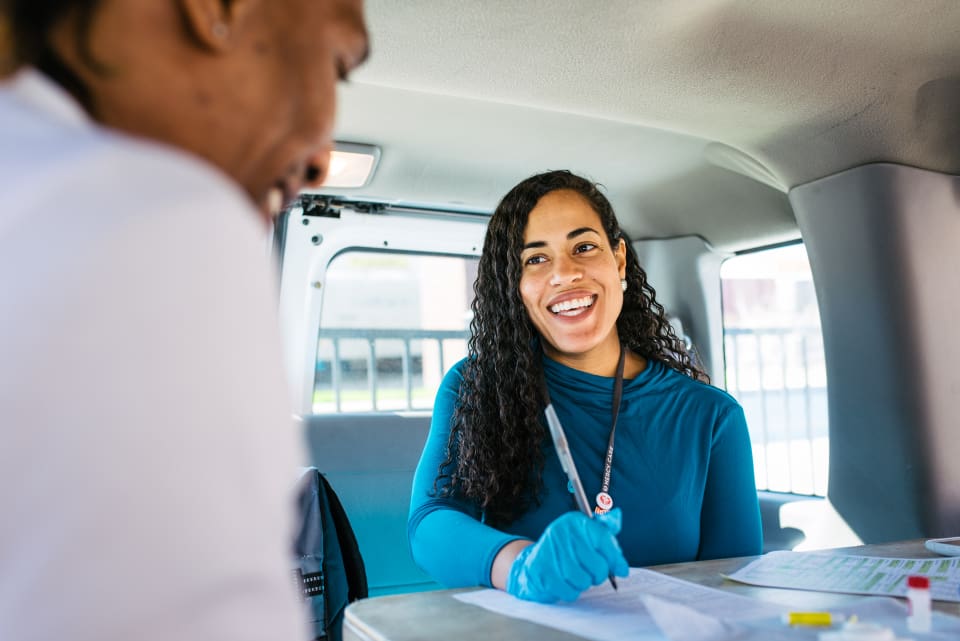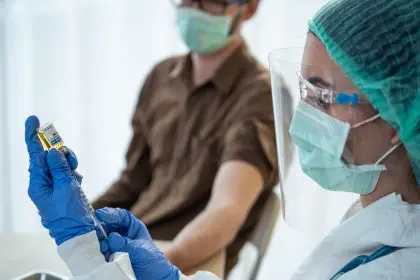
A record number of cities across America are experiencing an increase in infectious diseases. These illnesses can range from the common cold, influenza, hepatitis and measles to HIV.
In Atlanta, there are many health service providers specializing in caring for various ailments. Mercy Care is capable of treating patients in many areas: primary care, pediatrics, behavioral health as well has HIV integrated treatment.
As part of their daily operations, Mercy Care strives to combat the spread of infectious diseases. Meet Denise White, Mercy Care’s coordinator of infectious disease prevention. She has the task of “ensuring the prevention side of the Infectious Disease Program runs smoothly on a day to day basis.” One of White’s primary initiatives is coordinating events and sites where Mercy Care’s HIV testing staff can provide HIV testing to members of the community.
The Centers for Disease Control and Prevention has deemed Atlanta a “high impact” city for new cases of HIV infections. White’s job plays a very intricate in ensuring that people are aware of their HIV status and how to prevent the disease. “Educating the community around disease prevention and helping them identify motivating factors that contribute to their decision making is paramount,” White says.
White continues the conversation below as she talks about what motivates her daily to carry out Mercy Care’s mission in the community.
What motivates you each day on the job?
What motivates me each day is knowing that I have an impact on my community. As an African American woman, I am at a disadvantage for being at a higher risk for contracting HIV so education around prevention is key. A motivating factor for me is knowing that a lot of people need to be educated on simple prevention measures and if one person has learned and applied the strategies that prevent HIV, that is a success story. Unfortunately, the work does not stop there, the work will continue until we get down to zero new infections.
Describe Mercy Care’s specialty and responsibility to the community.
Mercy Care’s specialty is integrated care — primary medical care that includes mental health, dental, vision and case management for those who need housing and other social services. Housing is health. We proactively reach out to those who may come into our clinic for care through our mobile healthcare coaches, community health outreach program and street medicine.
Who is your target demographics? Can anyone utilize the services of Mercy Care?
Mercy Care turns no one away. We focus on the underserved — those without insurance or who are underinsured. But as healthcare costs rise along with high deductibles plans, we are serving more people, seniors and families who are looking for excellent affordable medical, dental and vision care.
What are some of the initiatives Mercy Care is currently working on?
We have recently developed a peer support group for our HIV clients, which will be held on a monthly basis to provide support and education to the clients. We have also re-established a client advisory board to allow clients to come and voice their opinions regarding the services that are being provided through our EIC department. We now provide quicker linkage to care through Intake and we have revised the RN case management workflow to better assist our clients getting into care and receive the resource and referrals they may need.
How often should sexually active people be tested?
The CDC recommends that everyone between the ages of 13-64 get tested at least once per year as part of their routine health care. For those individuals who are at higher risk for contracting HIV the recommendation is every 3-6 months.
What should they test for?
If a person is sexually active, they should not only get tested for HIV but for other STIs as well. A person may have acquired an STI but could potentially be asymptomatic which would make them more susceptible to contracting HIV.
Finish the sentence: Mercy Care is committed to …
providing a healing presence among those in Atlanta without health insurance, many of whom are living in poverty or experiencing homelessness. Mercy Care is network of 13 sliding scale fee clinics, both fixed and mobile, that provide primary care, mental health, dental, eye care and case management.












